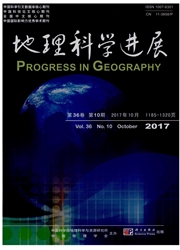

 中文摘要:
中文摘要:
自时间地理学和活动分析法引人中国以来的近20年间,时空间行为研究已经成为中国城市地理学的重要领域。中国时空间行为研究关注城市空间重构的描述与解释,试图从行为角度解释中国城市社会转型,强调转型期中国城市空间与居民个体行为之间的互动关系,重视日常生活、生活质量、社会公正、低碳社会、智慧城市等热点问题,探索在城市交通、旅游和城市规划等领域中的实践应用。中国时空间行为研究已经形成了以解读城市转型为目标、以规划应用为导向的鲜明特点,为理解中国城市制度与空间转型背景下人类行为模式的复杂性和多样性提供了一个全新的视角。但是,中国时空间行为研究依然面临着理论发展滞后、实践应用需要突破等挑战。本文是对时空行为研究近年来发展的综述性文章,从数据采集与分析方法演进、实证研究与规划应用进展等方面回顾了近20年来中国城市时空间行为研究的最新进展,致力于推动不同学科领域之间的交流和时空间行为研究自身的发展。
 英文摘要:
英文摘要:
As a unique perspective for understanding the complex relationships between human activities and ur- ban environments in space and time, the space-time behavior approach has become an influential methodology in China's urban geography since 1990s. Aiming at promoting communications and exchanges among urban ge- ographers in different contexts, this article provides a critical review of space-time behavior research in China. Ever since time geography and activity-based model were introduced to China's urban geography, space-time be- havior research in China has benefited from the fruitful theoretical and methodological progress made in West- ern geographical research. On one hand, GPS and mobile phone tracking technologies have been integrated into activity-diary surveys to collect more accurate and real-time activity-travel information. On the other hand, ad- vanced statistical models and geocomputational and 3D geovisualization methods have been adopted in more re- cent empirical literature in China. Yet, while Chinese urban geographers have made more methodological prog- ress in data collection and analytic tools thanks to the development of GPS and GIS technology, theoretical de- velopment still lags behind. However, space-time behavior research in China, with planning-oriented characteris- tics, offers a unique framework for understanding urban transformation in China. It has become a new perspec- tive for understanding the complexity and diversity of human behavior patterns in the transitional cities in Chi- na. In other words, space-time behavior research tries to describe and interpret urban spatial structures and spa- tial reconstructing in urban China from the perspective of individuals' behaviors. The impacts of danwei-based urban spatial organization and its disappearance, as well as the impacts of suburbanization on individuals' daily activities, have been studied carefully. Especially, this approach emphazes how spatial restructuring impact indi- viduals' daily life experiences, which in tu
 关于柴彦威:
关于柴彦威:
 同期刊论文项目
同期刊论文项目
 同项目期刊论文
同项目期刊论文
 Beyond Space (As We Knew It): Toward Temporally Integrated Geographies of Segregation, Health, and A
Beyond Space (As We Knew It): Toward Temporally Integrated Geographies of Segregation, Health, and A The shoemaker’s son always goes barefoot: Implementations of GPS and other tracking technologies for
The shoemaker’s son always goes barefoot: Implementations of GPS and other tracking technologies for 期刊信息
期刊信息
